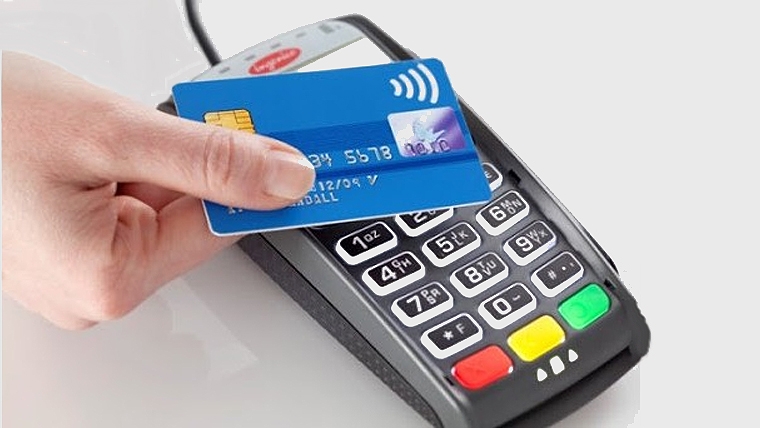
Payments giant Visa said it will introduce its Flexible Credentials feature in the United States this year, allowing customers to swap between funding and loan sources using an app on their mobile phone.
The Visa Flexible Credential option is in use in the Middle East and Asia, with around US$3 billion in transactions being processed. It allows users to switch payments option on the fly at the point of purchase, with the company describing a typical usage scenario like this:
You’re at the checkout and your account balance isn’t quite what it needs to be. But your loyalty points and line of credit are both healthy.
Instead of leaving items on the belt, you open your issuer’s mobile app and swap funding sources, turning what was your “debit card” into a credential that can draw on another available balance — all before your groceries are even halfway bagged.
...
From line of credit or checking account, to loyalty points, prepaid debit or instalments, some shoppers — and in the near future, all shoppers whose issuers enable the technology — are living in the future of payments, where one card can tap into different types of funding sources.
The payments company claims their market research shows Flexible Credential is what more than half of customers want, and there is an undeniable convenience factor in not having to present separate cards at the time of purchase.
However, adding a "pay-in-four" facility for buy now, pay later (BNPL) could be controversial, with the New Zealand government poised to regulate BNPL.
BNPL is undoubtedly attractive to consumers as the heavily marketed loan facilities are easy to obtain, and carry no interest.
The credit option carries risks for those who use it however. BNPL purchases might not be offered at the best price by vendors, as consumers paying in multiple instalments weaken their bargaining position.
Missed instalment payments can also carry hefty penalties, and BNPL credit has been criticised for luring consumers into making unaffordable purchases, getting them into debt and financial hardship.
In New Zealand, concerns over BNPL purchases, some of which are used for daily necessities, led the former government to capture providers under the Credit Contracts and Consumer Finance Act.
Several new protections for consumers using BNPL will come into effect from September 2 this year. These include basic conduct rules for providers such as assisting borrowers to make informed decisions and to treat them reasonably and ethically, but also barring them from applying unreasonable default fees.
The decision to extend the Visa Flexible Credential feature to the United States was announced at the company's annual Payments Forum in San Francisco. At the forum, Visa also said it is leveraging the Swedish Tink platform that it acquired in 2022 to add account-to-account (A2A) payments, and bringing it to the US.
Visa also provided an update on the tokenisation of transactions, which is now a decade in the works. The company said 28% of all transactions are tokenised, a technique which removes sensitive card holder information for improved fraud protection.
Through the tokenisation infrastructure in place, Visa wants to expand the use of the feature to let consumers who consent to sharing their online shopping data. Using "data tokens", merchants can then request consent from consumers to present them with more personalised offers as they shop.
If consent is given, Visa said it will, behind the scenes, issue a private data token to the merchant complete with artificial intelligence generated insights that are based on the consumers' transaction data. This will enable real-time shopping recommendations, with the help of the merchants' AI models.
Visa said the data token will be passed onto the consumers' banks, to show where it has been used and the information shared. Consumers can review where the data token has been shared using their mobile banking apps and revoke access to the token if decide to.
At the Payments Forum, Visa also said it has deployed the Fast Identity Online or FIDO passkeys technology. Passkeys are a simple method to replace passwords, with a quick setup to generate signed digital keys with biometrics such as fingerprint scans on devices used to authorise transactions.
The first deployment of Visa Payment Passkey Service will being with the company's Click to Pay worldwide.
4 Comments
"Instead of leaving items on the belt, you open your issuer’s mobile app and swap funding sources, turning what was your “debit card” into a credential that can draw on another available balance — all before your groceries are even halfway bagged."
Ever seen this in NZ?
i.e. Where people pick out products that have been rung up at the till/scanner because they don't have enough money to pay for it? (I did this once when someone put something into my shopping cart by accident. What a drama!) When in the USA I saw this ALOT!!!
Does it happen in poorer areas of NZ?
Seen it several times.
So greater consumer tracking and further privacy erosion. Why does it need AI?
Solution looking for a problem, seems like a quiet lead in to CBDC's to me.
Áctually it is lenders looking for more gullible and easier to target punters.
As to the detriment of using BNPL, currently it is those who don't use who are the suckers - the per transaction fees (at least double what the much criticised credit card cos charge for CC use) for BNPL are currently not attributed to the individual user but are "socialised".

We welcome your comments below. If you are not already registered, please register to comment
Remember we welcome robust, respectful and insightful debate. We don't welcome abusive or defamatory comments and will de-register those repeatedly making such comments. Our current comment policy is here.